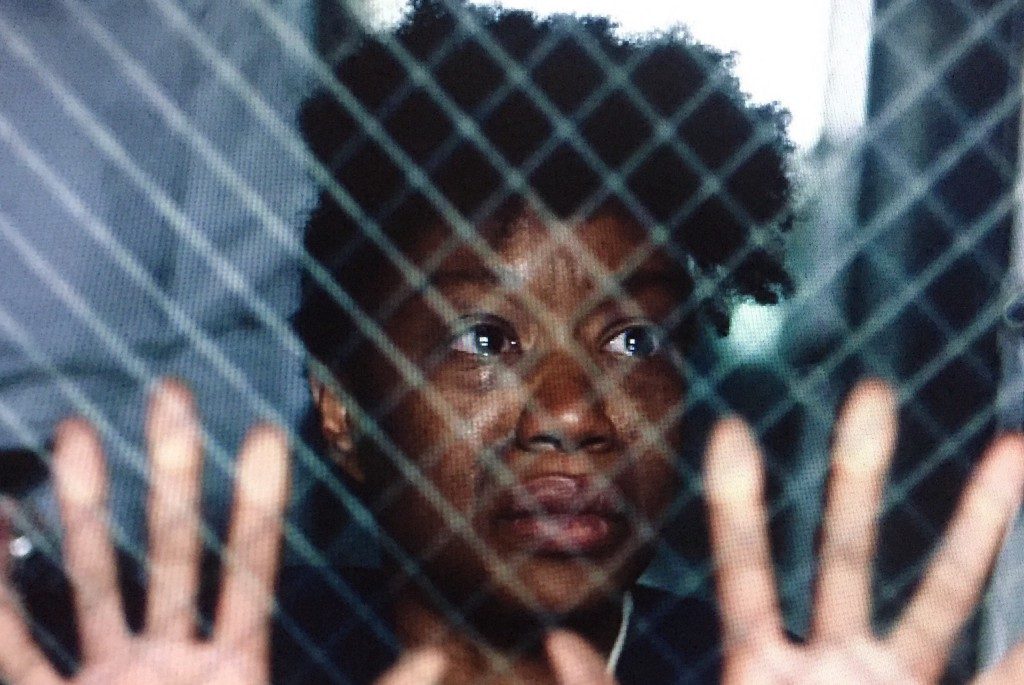Hagar Ben Asher is the writer-director of features “The Slut” and “The Burglar.” Her work has screened at festivals such as Cannes, Telluride, Rotterdam, Moscow, and Warsaw. Ben Asher has participated in the Sundance Film Lab and won scholarships from several film fests. Her next film, “The War Has Ended,” is in pre-production and will shoot in May 2019. Its script won two prizes at Berlinale this year.
“Dead Women Walking” will premiere at the 2018 Tribeca Film Festival on April 20.
W&H: Describe the film for us in your own words.
HBA: “Dead Women Walking” is a film about women who face their death, but victoriously find life. The film tells the stories of nine women heading to their execution. Each woman is living a different phase in the process of institutionalized killing: the last appeal, the last meeting with the family, the last meal, the last shower, the last smile. Through these protocol-structured stages, the lives of these women unravel: their past stories, their present chaotic situation, and the too-known near future.
W&H: What drew you to this story?
HBA: Almost 90 percent of women in prisons are victims of harsh abuse and violence. Women are the highest growing population in prisons in the U.S. I wanted to understand how women’s violence is different than men’s, find out if the legal system treats them differently, and examine if it is possible to change humanity’s perception on these [situations].
These women on death row broke the most profound code of morality. The legal system and the social system did not manage to cultivate them, understand them, or forgive them, but perhaps filmmaking might be able to expand the discussion, and make a difference.
W&H: What do you want people to think about when they are leaving the theater?
HBA: First and foremost about their loved ones and the responsibility they must hold toward them. And perhaps also, when the dust settles, that humanity might be a good neighborhood to live in.
W&H: What was the biggest challenge in making the film?
HBA: Writing a world that is real, and telling the story truthfully. These are very difficult stories with very dramatic, larger-than-life characters. It took restraint, and deep research, to keep them realistic, human, and simple.
As for filmmaking, I’d say casting. We had 83 actors to cast — nine in leading roles. But more than that, many actors to discover. I wanted the film to have a rough documentary feel to it, which means strong characters and personalities on screen — women facing their final hours, prison guards leading women to their death, lawyers, families, all in a very tense state, with miles of life behind them, on their shoulders, and in their eyes.
Luckily enough, I had a casting dream team — Rich, Coco, and Adam, who are for me full partners in the making of “Dead Women Walking.”
W&H: How did you get your film funded? Share some insights into how you got the film made.
HBA: It’s actually a very, very strange and unique story. “Dead Women Walking” started as a nine-episode short-form series for a new digital platform called BlackPills.
When we finished editing, we assembled it all together, mostly on a whim, just for the sake of feeling it out. We were all quite shocked as we realized that the continuous piece is very powerful, and far more exciting than anyone of us would have ever imagined. So, in the dark room, we discovered “Dead Women Walking” the movie.
W&H: What does it mean for you to have your film play at Tribeca Film Festival?
HBA: Joy, anxiety, and hope — not necessarily in this order. I believe the time for a subject like this to surface has come, and I think that New York is the right place for it to be acknowledged and thought upon.
I can truly say that I was hoping for “Dead Women Walking” to premiere at Tribeca, so I’d like to thank the luck car for stopping by.
W&H: What’s the best and worst advice you’ve received?
HBA: Don’t go into film business.
W&H: What advice do you have for other female directors?
HBA: Always take responsibility for your words, actions, and the rules of your universe. And make good films.
W&H: Name your favorite woman-directed film and why.
HBA: “Beau Travail,” Claire Denis’ film, invented the feminine cinematic perspective on mankind. Denis is, for me, a pioneer on-screen and in life. Her eye always captures a very specific reality and very specific story, which is my definition of good filmmaking.
W&H: Hollywood and the global film industry are in the midst of undergoing a major transformation. Many women — and some men — in the industry are speaking publicly about their experiences being assaulted and harassed. What are your thoughts on the #TimesUp movement and the push for equality in the film business?
HBA: Equality is not a question, for me, in life: it’s a fact, like breathing. Whatever stands in the way of freedom and humanity should be politely — or impolitely — pushed aside.







